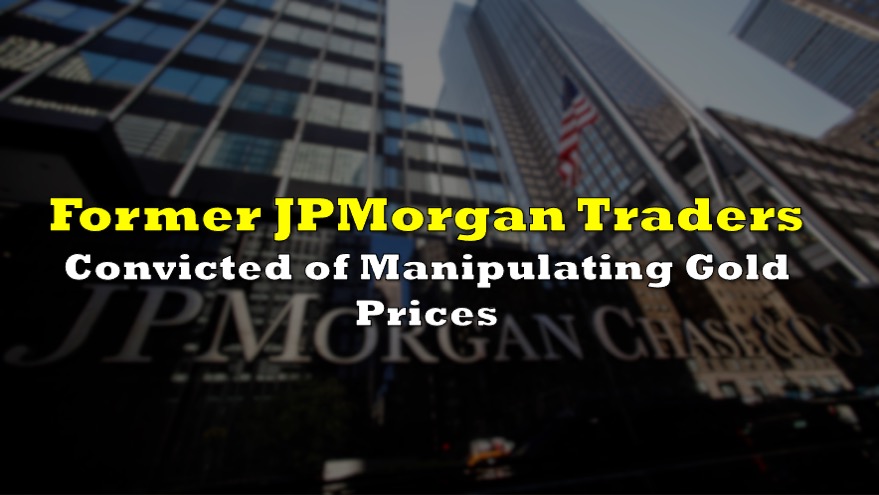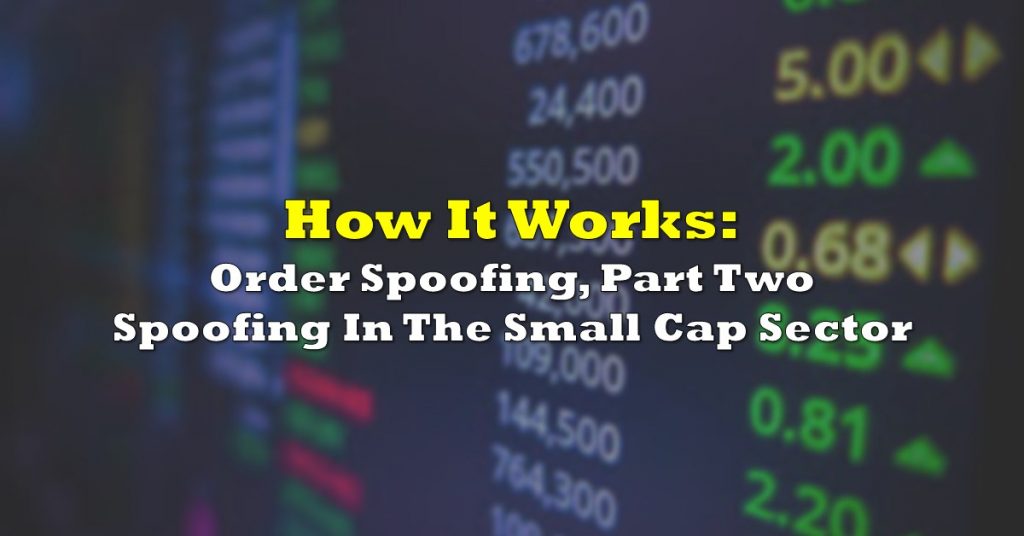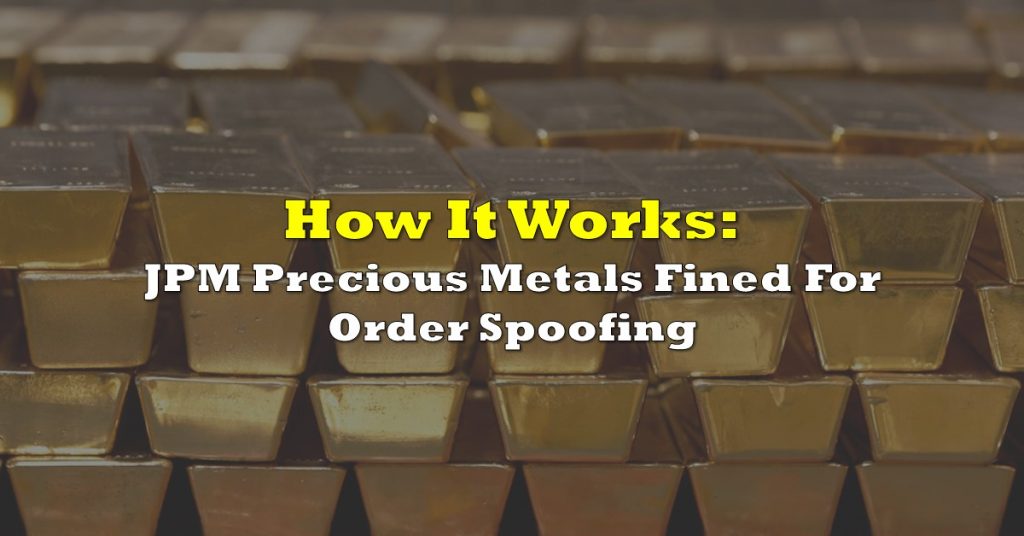The former head of JPMorgan Chase & Co.’s (NYSE: JPM) precious-metals desk, Michael Nowak, along with his top trader, Gregg Smith, have been handed prison sentences for their involvement in spoofing, fraud, and attempted market manipulation.
Nowak received a one-year-and-one-day term, while Smith was given a two-year sentence. This marks the most severe sentence thus far in the ongoing government crackdown on questionable trading practices.
The conviction of both individuals stems from a trial conducted last year. Gregg Smith, aged 59, was labeled as “the most prolific spoofer that the government has prosecuted to date,” while Michael Nowak, aged 49, has been identified as the mastermind behind the scheme.
The sentencing took place in Chicago under the jurisdiction of US District Judge Edmond Chang. During the sentencing, Judge Chang underscored the clear understanding of both Smith and Nowak that their actions were ethically and legally wrong.
“This is a serious offense that you committed,” Chang addressed Nowak. ““What happened here was the equivalent of putting out lies — and many lies — into the market. Market integrity is a crucial component to the financial markets. These lies moved the market. It’s not like they had zero impact.”
JUST IN : JPMORGAN’S HEAD GOLD TRADER GREGG SMITH GETS TWO YEARS IN PRISON FOR SPOOFING TRADES AND MARKET MANIPULATION $JPM
— GURGAVIN (@gurgavin) August 22, 2023
The imposed prison terms were designed to serve as a warning against market manipulation, as stated by the judge: “I’m trying to deter all forms of financial fraud in the market.”
Judge Chang set Nowak’s sentence commencement date for October 23 and Smith’s for January 15. Both individuals are considering appeals against their convictions.
Acting US Assistant Attorney General, Nicole Argentieri, emphasized that Smith and Nowak had exploited their influential positions in the global precious metals markets to orchestrate a blatant attempt at price manipulation for personal gain. She added that the Justice Department was committed to holding “accountable those who engage in fraud and manipulation that undermines the investing public’s trust in the integrity of our commodities markets.”
Initially, prosecutors sought a six-year sentence for Smith and a five-year sentence for Nowak. However, on Tuesday, they revised their demands to approximately two years each. Defense attorneys for both individuals argued that imprisonment was unwarranted since neither had personally benefited from the spoofing activities.
This case involving JPMorgan is part of a wider effort by federal prosecutors to curtail illegal spoofing—where traders place false orders to artificially impact prices before swiftly retracting them. Smith and Nowak exploited this technique to manipulate gold and silver prices from 2008 to 2016.
The convictions of Smith, Nowak, and a third trader, Christopher Jordan, are the latest successes in the prosecution’s crackdown on spoofing cases involving prominent Wall Street institutions such as Bank of America Corp., Deutsche Bank AG, and Morgan Stanley. Earlier, two former traders from Deutsche Bank and Bank of America each received one-year sentences.
In 2020, JPMorgan, the largest US bank, consented to a $920 million settlement with the Justice Department, marking the largest fine levied against any financial entity implicated in market manipulation since the 2008 global financial crisis.
Prosecutors pursued charges against several members of Nowak’s team at JPMorgan. Three of them pleaded guilty and provided testimony against Nowak and Smith. Witnesses provided insight into Nowak and Smith’s strategy of placing substantial buy and sell orders without intending to execute them—this strategy aimed to sway prices in a direction advantageous to the bank.
Former Smith protégé, Christiaan Trunz, who cooperated and pleaded guilty, testified that he learned the art of spoofing by observing Nowak and Smith over the years. Trunz detailed how Nowak coached him to deceive compliance officials when his own spoof trades drew scrutiny. Additionally, Trunz revealed that Smith’s rapid placement and cancellation of false orders earned him a reputation for being remarkably swift.
Spoofing was once a commonplace practice in the commodity sector, where traders would submit deceptive buy or sell offers to manipulate prices in their favor. However, this practice became unlawful following the enactment of the 2010 Dodd-Frank Act, which implemented several banking and market reforms in response to the financial crisis.
During the trial, Smith’s legal counsel defended his client’s actions as legitimate, providing alternate explanations for simultaneously executing precious metals contracts on behalf of customers.
Information for this briefing was found via Bloomberg and the sources mentioned. The author has no securities or affiliations related to this organization. Not a recommendation to buy or sell. Always do additional research and consult a professional before purchasing a security. The author holds no licenses.










Market Manipulation: How It Works.